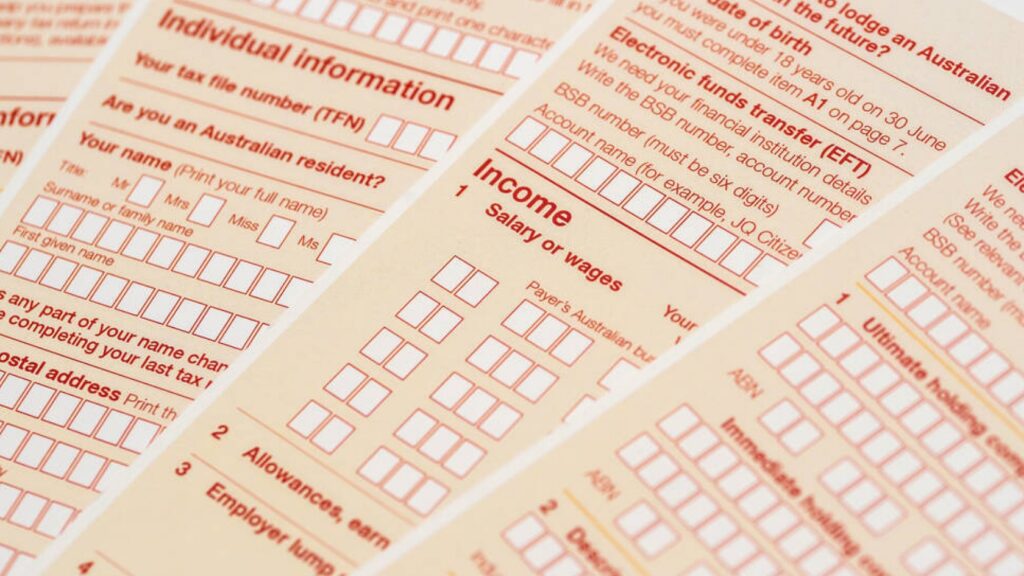How to Avoid Costly Tax Penalties: Key Strategies for Staying Compliant
Do you know that even a small mistake on a tax return can lead to significant tax fines and penalties? With the Australian Taxation Office (ATO) scanning, individuals and businesses must tread carefully to avoid audit triggers. Effective tax planning strategies and seeking the guidance of a tax planning accountant can be invaluable. So, today, let’s discuss how to avoid tax penalties and be proactive with your tax planning.
Key Triggers for ATO Audits
Common tax mistakes like large cash transactions, unpaid or underpaid superannuation, and inconsistencies between tax returns and BAS statements are usually red flags. Frequently filing online tax returns late, high fluctuations in income or expenses, and unusually high deduction claims will also likely attract notice. Moreover, a lifestyle that does not accord with declared income, continuing operating losses, and complex international dealings may invite special attention from the ATO. Be familiar with these triggers to keep your tax records clean to reduce the chances of an audit.
Penalties for Tax Evasion in Australia
Tax evasion is a serious offence in Australia, with significant consequences for those who attempt to circumvent their tax obligations. The ATO takes a firm stance against tax fraud and evasion, implementing strict tax avoidance penalties to deter such behaviour.
Criminal Penalties
In severe cases of tax evasion, criminal charges may be pursued. The maximum penalty for tax evasion under the Criminal Code Act 1995 is a hefty ten years imprisonment. This sentence depicts the gravity with which Australian authorities view deliberate attempts to defraud the tax system.
Administrative Penalties
The ATO may impose administrative penalties for less severe cases. The state may also impose tax penalties for non-compliance. For instance, in South Australia (SA), RevenueSA may impose administrative penalties under the Taxation Administration Act 1996 (SA). These penalties can be substantial:
- The standard penalty tax rate is 25% of the amount of tax unpaid.
- For deliberate tax defaults, the penalty tax rate increases to 75% of the amount of tax unpaid.
In addition to penalty tax, interest may be charged on unpaid tax amounts. The interest rate comprises:
- A market rate component to reimburse the government for financing costs.
- A premium rate component of 8% per annum to deter late payments.
For registered employers who pay monthly tax late on more than two occasions within a financial year, a penalty tax of 5% applies, along with interest at the market rate.
Additional Consequences
Beyond direct financial penalties and potential imprisonment, tax evaders may face reputational damage, which can be particularly detrimental for businesses and professionals. They may also find it hard to secure loans or credit in the future. Increased scrutiny from the ATO in subsequent years will also likely happen.
The ATO distinguishes between honest mistakes and deliberate evasion. While errors may result in smaller penalties or simply a requirement to pay the correct amount of tax, intentional evasion is treated much more severely.

What to Expect During an ATO Audit
Getting notified about an audit by the ATO might come as a shock. However, if you’re well-prepared, you’ll find it much easier to be in control. Here is what normally happens:
- Notification: The audit begins with a formal notification from the ATO.
- Review: The ATO will go into detail regarding examining your financial records.
In case of discrepancies, ATO might move on to further examination. In managing an ATO audit effectively, keep in mind the following:
- Cooperation matters. Supply all the information that the ATO requests. Do this promptly and cooperate fully.
- Transparency is vital. Be honest during the audit so that additional penalties will not be added.
- Seek expert guidance. Engage a tax planning accountant who can help guide you through this process.
How to Avoid Tax Penalties & Interest: Key Tips to Minimise Your Risk
Report All Sources of Income
Correct inclusions of your income will avoid the on-charging of interest charges and lessen the risk of an ATO audit. The ATO has elaborate data-matching procedures to compare your reported income with bank, employer, and financial institution records. Ensure compliance by:
- Properly reporting all sources of income, including wages, business income, and foreign-sourced income.
- Keeping accurate records of cash transactions, above all businesses.
- Keeping all detailed records and receipts to support your income declarations.
Claim Deductions the Right Way
Another critical factor in avoiding an audit is claiming only legitimate deductions. To keep yourself safe from the prying eyes of the ATO, only:
- Claim deductions that are directly related to earning your income.
- Keep excellent records of all expenses, including receipts and invoices.
- Avoid excessive or unusual deductions that may raise suspicion.
Recognise the Need for Good Record-Keeping
A good record-keeping system can help you put up an effective defence against ATO audits. Proper documentation will back up your claims for income and deductions and will help you to comply with the following:
- Keep neat and orderly financial records for easier filing of online tax returns and as proof in case of investigations.
- Make a clear distinction between personal and business expenses.
- Utilise accounting software to track receipts and expenses, or engage a local accounting firm that uses the latest accounting technology.
Be Ahead of Deadlines
Ensuring the key dates of your online tax return avoids interest charges and other unwanted scrutiny from the ATO. Here’s how to ensure timely lodgment:
- Set reminders for tax return due dates. Review and reconcile financial records regularly to ensure accuracy.
- Consult a tax planning accountant if there is some uncertainty about the filing process.
Get Tax Audit Insurance
Tax audit insurance provides peace of mind by covering ATO audit costs, including professional fees for accountants and tax advisors. Note the following:
- Ensure you understand what you are covered for in your tax audit insurance.
- The existence of tax audit insurance may alleviate much of the financial stress associated with an audit.
- Discuss with a taxation professional the various benefits to be accrued from tax audit insurance.
Let Taxology Help You
At Taxology, our mission is to democratise tax and accounting services so everyone can have access to them, understand them, and benefit from them. The key to all business and personal success is a strong financial foundation. Contact us now to learn how to avoid tax penalties & implement tax planning strategies to secure you or your business.

